Keywords:
sense, relationship with knowledge, knowledge, failure, success.Abstract
At present, the school begins to lose meaning and protagonism in its role of teaching and disciplining. The low results obtained in national and international standardized tests lead us to observe the phenomenon of school failure. The research problem asks for the sense of attending school for a subject in relation to learning. This article presents the results of a qualitative and interpretative study that sought to know the sense of attending the school and the support received in their intellectual and scholastic learning the 10th grade students of the “Los Andes” School in Cali (Colombia). In order to carry out this research, it was used the theory of the Relationship with Knowledge (RAS), of anthropological-sociological nature. We used the biographical method of hermeneutical approach and the instrument of information gathering were the balances of knowledge. As for the results, it makes sense for students to attend school because they like to learn, socialize and relate to their peers. However, it was found that students dislike the method employed by teachers in the activities inherent to learning. According to the theory, to obtain knowledge, it is necessary that the student acquires the knowledge that allows him to develop as a person, to relate with himself, with the other and with the world. In conclusion, the school privileges the intellectual and school learning, but the method proposed by the teachers does not allow the acquisition of such learning.
Downloads
References
Bourdieu, P., & Passeron, J-C. (1996). La reproducción. Elementos para una teoría del sistema de enseñanza. Madrid: Editorial Laia S.A.
Charlot, B. (2008). La Relación con el saber. Elementos para una teoría. Buenos Aires: Libros del Zorzal.
Deleuze, G. (2006). Post-scriptum sobre las sociedades de control. Polis. Revista de la Universidad Bolivariana, 5(13), 457-463.
Delors, J. (1996). La educación encierra un tesoro. Madrid: UNESCO – Santillana.
Dickie, G. (2003). El siglo del gusto: la odisea filosófica del gusto en el siglo XVIII. Madrid: Antonio Machado Libros.
Foucault, M. (2005). Vigilar y castigar: nacimiento de la prisión. México: Siglo XXI Editores.
ICFES (2010). Los resultados de Colombia en la prueba TIMMS 2007 pueden consultarse en: RESULTADOS DE COLOMBIA EN TIMMS 2007. Resumen ejecutivo. http://www2.icfes.gov.co/investigacion/component/docman/docview/15-informe-resultados-de-colombia-en-timss-2007-resumen-ejecutivo?Itemid=
ICFES (2012). Los resultados de la prueba SABER 2012 pueden consultarse en: http://www2.icfes.gov.co/resultados/pruebas-saber-resultados
ICFES (2013). Los resultados de Colombia en la prueba PISA 2012 pueden consultarse en: COLOMBIA EN PISA 2012. Informe nacional de resultados. Resumen ejecutivo. http://www.icfes.gov.co/investigacion/evaluaciones-internacionales/pisa
Kant, E. (2003). Pedagogía. Madrid: Akal, S.A.
Lyotard, J.F. (1998). La condición postmoderna: informe sobre el saber. Madrid: Cátedra.
MEN (2006). Guía No. 3. Bogotá: Ministerio de Educación Nacional.
Ricoeur, P. (2007). Freud: una interpretación de la cultura. México: Siglo XXI Editores.
Vroom, V. (1995). Work and motivation. San Francisco, CA: Jossey-Bass Publishers,
Zambrano, A. (2011). Didáctica, pedagogía y saber: aportes desde las ciencias de la educación. Bogotá: Cooperativa Editorial Magisterio.
Zambrano, A. (2014). Escuela y saber: figuras de aprendizaje en niños y niñas de 5° y 9°. Cali: Universidad Icesi.




